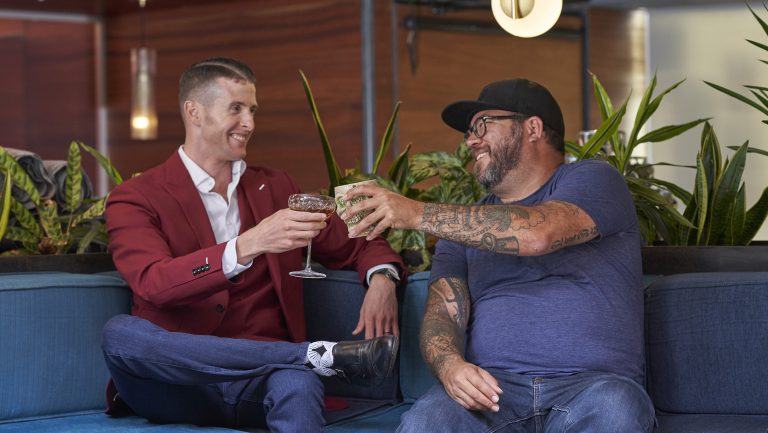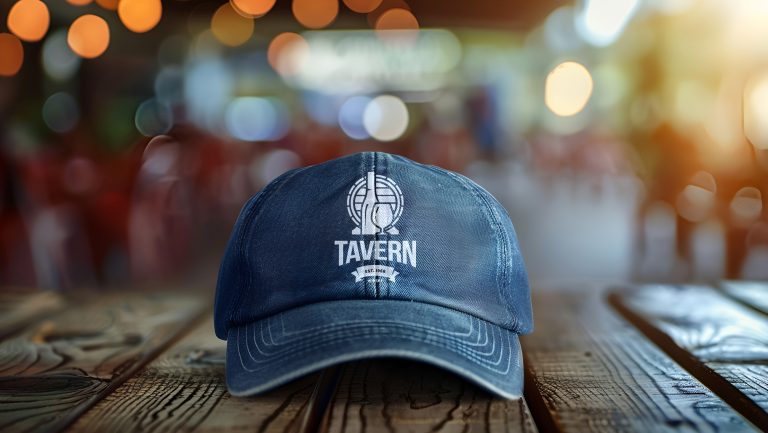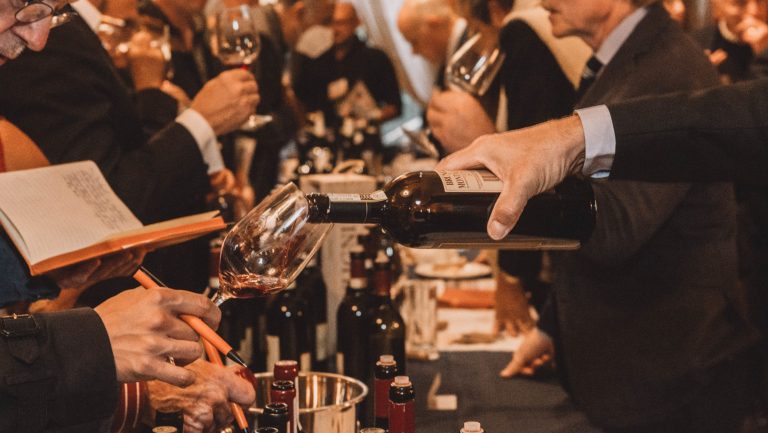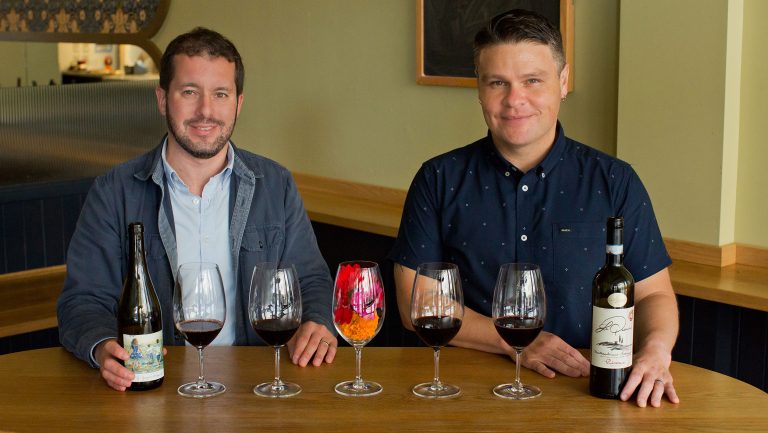“If the parents are dysfunctional, the entire household suffers,” says Josh Jacobs, the cofounder of Speakeasy Company. It’s an analogy for the leading relationship in a beverage company—the founding partnership that so often runs it. “[But] unlike most households, business partners are managing tens of millions of dollars, so the stakes are higher.”
In the beverage industry, with its numerous startups, partnerships form the foundation of many businesses and brands. And everyone knows of one that eventually became stressed and even fractured. There can be many reasons for this, but there are also practical approaches to reduce the chances of it happening—or the fallout if it does.
SevenFifty Daily spoke with industry professionals and legal experts to find out what they think are the keys to a healthy beverage company partnership. Here are the main takeaways.

Don’t miss the latest drinks industry news and insights. Sign up for our award-winning newsletters and get insider intel, resources, and trends delivered to your inbox every week.
When to Formalize a Partnership
The beverage business attracts many free-spirited entrepreneurs, who, when launching a brewery, distillery, brand, or company, might put off formalizing a partnership with signed legal agreements, preferring a handshake. This was the case with Jacobs and his founding partner Michael Bowen, who launched Speakeasy in 2017. “For us, it was: ‘Let’s build it and see if they come’—the Field of Dreams idea,” says Bowen.
He didn’t want to spend time legalizing the business if it took away from focusing on their vision. But two years in, once Speakeasy was off the ground, they formalized their arrangement. “As the business matured, so did our relationship, both outlining clearer divisions of responsibilities, bringing in the lawyers to make sure everyone was protected, and really making sure that all parts and facets of the business and the relationship were buttoned up,” says Jacobs.
This isn’t necessarily the approach that Rebecca Stamey-White recommends. Stamey-White, a partner in the San Francisco-based law firm Hinman & Carmichael LLP, which specializes in legal services for the alcohol-beverage industry, says enlisting the aid of a lawyer or consultant early on can actually save money in the long term.
“You don’t want to hire lawyers when you are going through a breakup of your partnership and realize that you didn’t have anything set out in writing or formalized,” Stamey-White says. “That is a much more costly legal spend than if you get lawyers involved early on when everyone is happy and excited about the business. It helps prevent problems down the line because you’re getting buy-in, you’re working with someone to determine exactly who’s going to be doing what. And it also avoids potential compliance issues which can create stress for partnerships.”
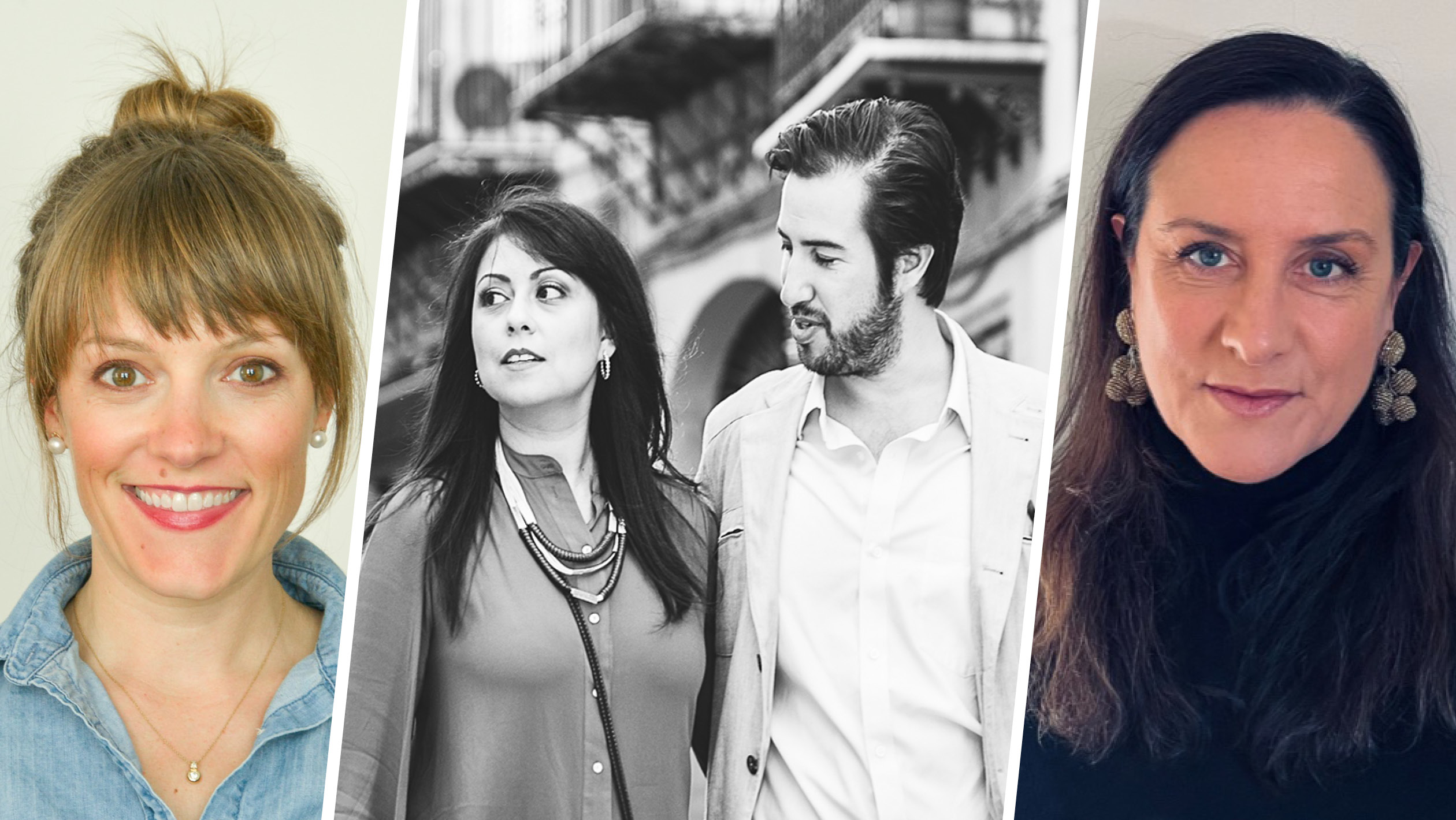
Husband-and-wife team Marco and Dejou Marano, who have founded three wine-related companies together, the latest being the non-alcoholic wine brand Prima Pavé, codified their partnership from the start. Their agreement detailed all the aspects of their partnership, including succession, continuation, contingency planning, and ownership. “The stronger foundation you lay, and the more thought you put into it in the initial stages, the better the outcome in the long term,” says Dejou Marano.
Enlisting a consulting firm that specializes in advising beverage alcohol companies can also help keep the partnership on a healthy course by serving as a check on unrealistic expectations. “It helps to have someone providing benchmarks and saying, ‘No, you’re not going to have a lucrative exit in two years, or three years—do you want to do this for five to seven years?’” says Susan Mooney, the CEO of Spirits Consulting Group.
Plan for All Contingencies—Including an Exit Strategy
Stamey-White says most lawyers will raise the question of exit strategy in the initial discussions. “Thinking about the exit at the beginning is important,” says Stamey-White. “Is this a business you’re going to hold onto and operate for 20 years or are you trying to eventually exit and have something to sell?”
At Finback Brewery in New York City, cofounders Kevin Stafford and Basil Lee created an operating agreement that focused on various contingencies. “In the event of certain issues, here’s the process to resolve them,” says Lee of the fine print. “Ideally, you’re working with reasonable and fair people [as your partners], and attorneys are there to help you commit to clear language. What happens if someone dies? If there’s a disagreement? If someone wants to sell the company?”
Stamey-White says the most common conversation she has with beverage industry clients is about scaling a brand to eventually sell it. “You want to be clear about what’s included,” she says. “What are you going to be trying to sell? Is it a specific brand that the partners want to make into a joint venture that they can sell off from the larger portfolio, or is it going to be the entire business?”
Such was the case for distillers Alastair Brogan, who is from Scotland, and Ted Palmer, who is based in Boulder, Colorado. They met when Brogan was looking for a partner in Colorado to help him make American single malt and Palmer was looking for a cash infusion for his business, then known as Roundhouse Spirits. They ironed out a deal for Brogan to purchase a 25 percent share and then buy out Palmer after five years, changing the company’s name to what it is now: Zephyr Spirits, which produces brands like Boulder Spirits from Vapor Distillery.
How much Palmer would get paid for the sale depended on the company’s revenue—which was specified in their initial agreement. Brogan’s funding helped boost their distillery’s production, which eventually benefited Palmer. “As we increased our revenue, it would increase his exit valuation. He was gaining from my investment in the business, but he was also getting an exit strategy,” says Brogan.
Sashi Moorman, a wine industry entrepreneur, believes a good partnership should be able to accommodate growth and change. Such flexibility helped in his partnership with Rajat Parr on Domaine de la Côte, Sandhi and Evening Land, in which Moorman is the winemaker and Parr handles distribution. “Raj gradually became very enamored with winemaking and the vineyard side,” Moorman says. He was supportive of Parr buying Phelan Farm to work as a winemaker while continuing his partnership with Moorman on these other ventures. “I think the secret to a great partnership is to always support your partner in what they want to do,” says Moorman. “And to be very creative, because if roles change in a business, that can cause a lot of friction.”
Clearly Define Each Partner’s Role
“There’s a lot of excitement with new companies, creating a brand and product that’s going to be on the shelf, so, people go forward with a lot of enthusiasm,” says Mooney. “And a lot of times it just takes that extra beat to slow down, discuss the roles, and define who does what.”
Part of that is finding a partner with beverage experience, especially in the U.S. where the three-tier system is particularly complicated to navigate. “One of the things I usually ask early businesses is, ‘Does anyone have beverage experience?’” says Stamey-White. “If you’ve got folks that have never worked in this industry before, I will certainly recommend that they think about adding a partner that understands this industry.”
I think the secret to a great partnership is to always support your partner in what they want to do. And to be very creative, because if roles change in a business, that can cause a lot of friction. – Sashi Moorman, wine entrepreneur
Ideally, each partner will bring different strengths or expertise to the business. For example, at Speakeasy, Bowen handles the technical and operational side of the ecommerce platform, while Jacobs’ role is to represent the company with partners, brands, and investors. “Josh is the shiny shoes in the front-of-house and I’m the dirty work boots in the back,” says Bowen. “We collaborate on what the high-level vision and strategy is and then we both break off and we go execute where we do well.”
A similar dynamic has existed between the partners at Finback Brewery, where Stafford heads up production, while Lee takes on the business and marketing. “We had a natural division,” Lee says. “We complemented each other in our roles. If everyone wants to be the head brewer, sometimes it causes tension. For us, we didn’t have the same ego about beer.”
Bump Williams, the founder of Bump Williams Consulting, which has worked with many alcohol distributors and breweries, agrees. “Undercapitalization is the number one culprit; the second biggest mistake I see is a failure to clearly communicate roles, responsibilities, and accountabilities amongst the ownership team,” he says.
Marco Marano says he has seen people get very specific about what they’re bringing to the partnership, such as the amount of sweat equity versus the amount of money they invest. For Brogan, this was a critical part of his partnership agreement with Palmer. “There were common expectations in the contract that each of us would put in a normal working week, what pay we would both get for the next four or five years, an increase per annum, what benefits,” he says. “We really detailed it out the best we could.”
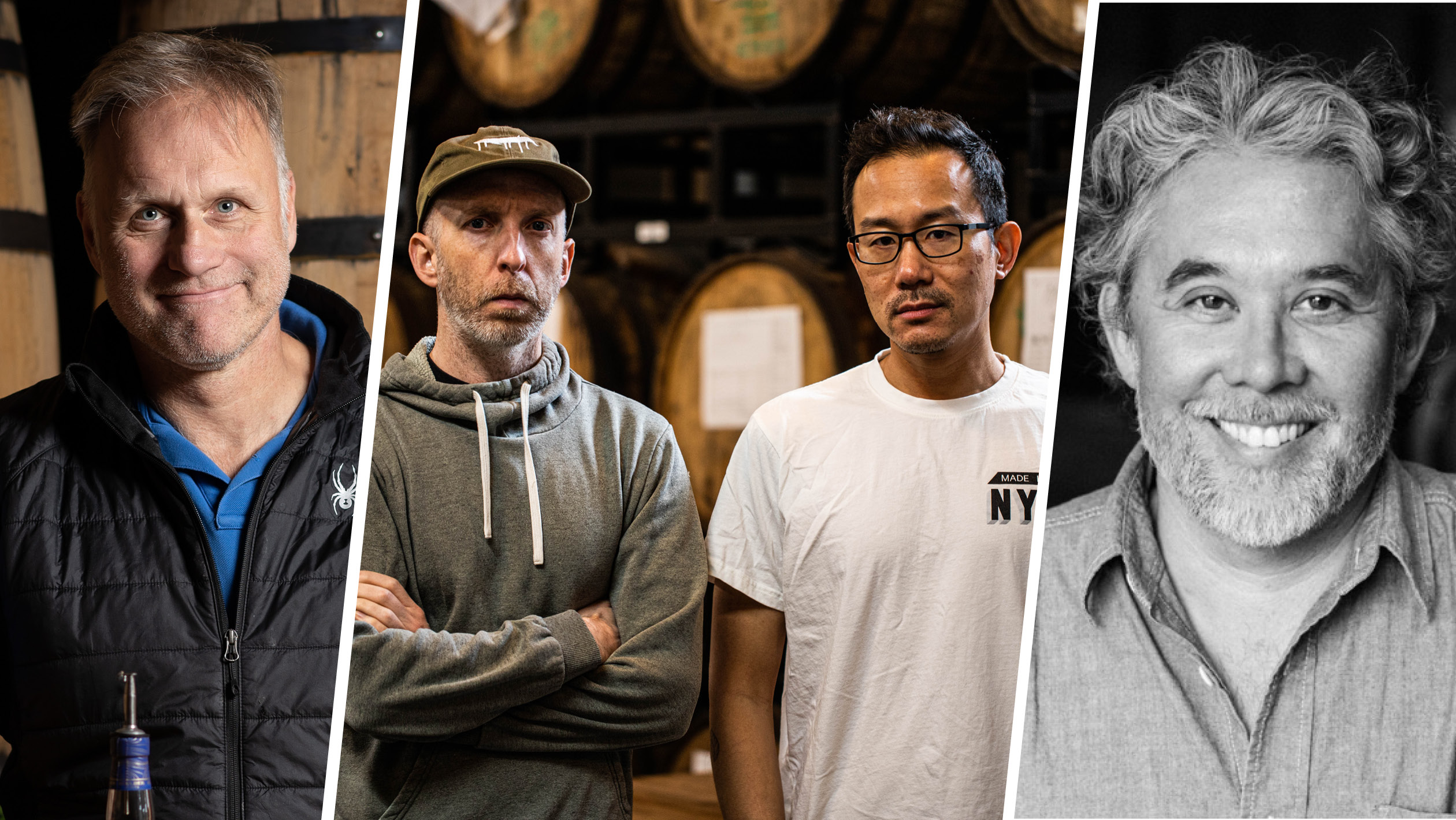
Strategies for Communication
One key, as Marco Marano puts it, to “being a caring and understanding partner,” is good communication. Jacobs and Bowen, for example, say no matter what else is going on, they make time to get together at least once a week. “We’re a virtual company,” says Jacobs, “but Michael and I get together every single week and sit down for a few hours in person. That’s time for us to work on our personal relationship, and that’s also where a lot of the best innovation really springs from.”
Lee says he learned early on from his restaurateur parents, who were partners for almost 40 years, about how important it is to have give-and-take when it comes to communication. This served him and Stafford well when their partnership expanded to three people after they opened another distilling business during the pandemic. “Adding a third partner adds another level of complexity to the partnership,” says Lee. “The dynamic’s a little different, but I think it’s the same principles. It only reinforces to me [the importance] of being flexible and communicating.”
Williams has a warning for those who think their family or friendship bonds alone will be enough to see them through the ups and downs of partnering on a beverage business: “Kiss your friendship and money goodbye,” he says. “This scenario is a disaster waiting to happen and I would advise them not to enter into business because it will cost them more than money.”
Partnerships take work and dedication when it comes to navigating potential obstacles. But those who have been successful say the payoffs are worth it. “When it works well, a strong partnership where you have complementary skill sets and the same vision is a really great add to the company,” Mooney says. “Starting a company is really hard and it’s really lonely, but when partners do work well together, it’s really great to see.”
A good example of this is Jacobs and Bowen at Speakeasy. “Even in the most stressful times, we know how to make each other laugh. It really helps us push through seemingly insurmountable obstacles that we, of course, like every startup, have had to face,” says Jacobs. “Ultimately the driving force of our business marriage has been our shared mindset of never giving up, just unwavering persistence. And that’s why we gravitated towards each other.”

Dispatch
Sign up for our award-winning newsletter
Don’t miss the latest drinks industry news and insights—delivered to your inbox every week.
Andrew Kaplan is a freelance writer based in New York City. He was managing editor of Beverage World magazine for 14 years and has worked for a variety of other food and beverage-related publications, and also newspapers. Follow him on Twitter at @andrewkap.

